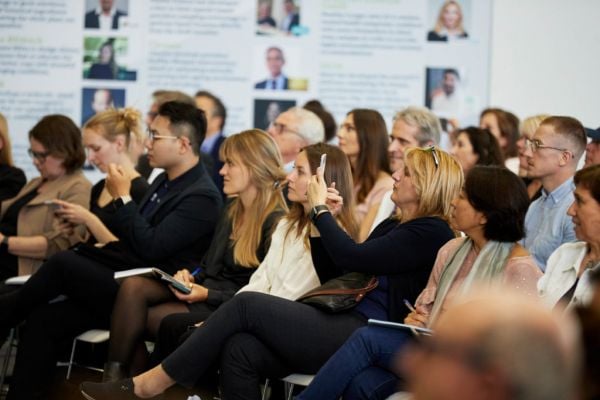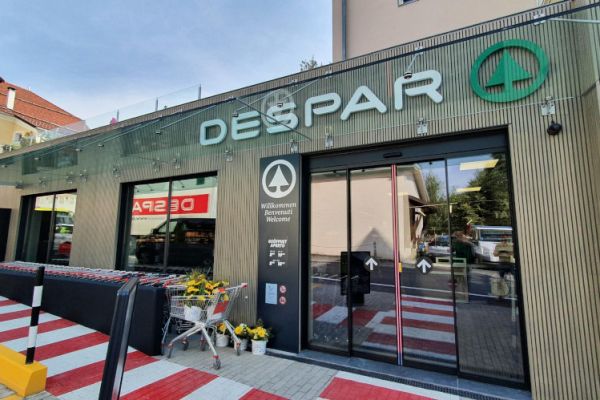When the heavyweights of FMCG descended on London for the Consumer Goods Forum Global Summit, it soon became clear that a overwhelmingconsensus in strategy has emerged. Kevin Kelly reports.
Act now, act fast is more than just a clever phrase, particularly when you’re dealing with some of the top executives from the FMCG and retail spheres. It was very much the collective mindset of all the speakers at the 2010 Consumer Goods Forum Global Summit, which was held in London from 23 to 25 June. While there were many different themes running through the summit, the subject of sustainability was certainly the most dominant, with the 1,000 or so delegates that attended firmly focused on the growing trend towards ethical consumerism.
ESM was a media partner for this prestigious event, and thus I had the opportunity to swap ideas with some of the biggest names in the business. The Consumer Goods Forum’s annual summits have long been respected for attracting some of the big hitters in the business, and they don’t come any bigger than the two current co-chairs, Muhtar Kent, the CEO of Coca-Cola, and Lars Olofsson, the CEO of Carrefour. Both Kent and Olofsson are in charge of businesses that have embraced sustainability head on, and are respected throughout the industry. When they talk, people listen, and such is the global reach of their respective companies that it could be argued that their companies hold more sway than many governments when it comes to setting the ‘green agenda’.
In saying that, it is worth noting that the forum would benefit in future if there were more delegates from Germany. Incredibly, there wasn’t a single representative from Aldi or Lidl present, despite the level of admiration for their business model from many of the delegates. More emphasis should also be placed on attracting more Spanish and Italian representatives, who were also noticeable by their absence. At an event where an underlying message was to engage more with the consumer, retailers such as Aldi and Lidl should be present, as these will be the ones that will miss out considerably if they’re not seen to embrace this agenda.
On the opening day, the chief executive of IGD, ‘the food and grocery experts’, Joanne Denney-Finch OBE, delivered arguably the most memorable speech of the day, calling for a more ethical approach to both consumerism and business practice. Europe-wide consumer research undertaken by her organisation shows that 30 per cent of shoppers cite ethical values as a reason for retailers to break new ground when it comes to innovating and refreshing product lines, while 80 per cent said that they were more likely to reward a company that behaves in an ethical manner and promotes sustainability. A number of French delegates to whom ESM spoke during lunch were particularly impressed with her presentation, although, noticeably, she was one of only two female speakers at the event – a sign that the gender differential that has existed at the top of many of these multinational powerhouses for some time is still evident. The IGD chief executive appeared ahead of Waitrose’s Mark Price, whose keynote address focused on a similar topic: ‘Food within Nature’s Limits’. Price also unveiled at the event that, come this autumn, around 200 new Duchy Originals products are to hit its shelves – just the news keynote speaker Prince Charles wanted to hear as he took to the podium.
The new consumer, speakers argued, wants higher ethical standards, but doesn’t want to have to pay through the nose for it – in effect, they want ‘better values for their value’. A joint presentation from Tesco’s Sir Terry Leahy and Unilever’s Paul Polman addressed this subject in more detail, with Leahy highlighting the recent investment Tesco has made in reducing both deforestation and the environmental impact of its refrigeration units. Leahy is immensely impressive for his passion to the green agenda – his company diverts more profit to sustainable operations than any other operator in the room, and amongst his peers, he is highly regarded for it. Polman, too, highlighted how Unilever has done a lot of work in improving its refrigeration, converting some 1.5 million ice-cream cabinets around the world to use HC technology. “We can grow without carbon. There is such a thing as green growth,” noted Polman. “To achieve it, we need to think afresh.” DAY 2 Technology was the underlying theme of day two, which got under way with Mike Bosman, CEO of One Digital Media, informing the crowd of the effect that technology is having on reshaping consumer behaviour and growth. Retailers now have to contend with ‘super consumers’ who are loaded with every conceivable piece of information about all the products on display, and who keep up to date with the very latest trends in the industry. In short, nothing gets past them. This was a theme picked up by the CEO of PepsiCo’s European operations, Zein Abdalla, who spoke about the benefits of social media, and spoke of the new generation of consumers as ‘The Net Generation’. “You have to listen as much as you tell,” he said.
Asda chairman Andy Bond also spoke on day two, offering advice on how to connect with customers in a new retail environment that is run “by the consumer, for the consumer”. He advocates giving the consumer more control, making them feel more involved in the running of the stores, and called on retailers to be more transparent in their dealings with shoppers. Bond used his teenage son, Ben, as an example of the next generation of shoppers. He explained to a surprised audience that Ben never watches TV, only downloads his music from the Net and never shops for his clothes in store. In short, he’s an exclusively online consumer. Nestlé CEO Paul Bulcke focused on the social issues facing corporate giants and how they manage conflict and controversy. Central to his argument was the need to “create shared values” as a way for both shareholders and society in general to relate better to companies. “Big business,” Bulcke said, had lost touch with society. “But we are a human company. We must put back the human face.” These were admirable words, for sure, but only time will tell what weight they will carry. DAY 3 The highlight of day three was undoubtedly the appearance of the newly elected co-chairs, Lars Olofsson and Muhtar Kent, who delivered their own personal messages to the assembled delegates. Olofsson, the charismatic Swede in charge of Europe’s largest retailer, voiced his belief that the industry “must move forward in a more collaborative, open and inclusive way”. Clearly relishing his new role with the CGF and what the future has in store, Olofsson envisages the group breaking new ground in its chosen area of influence, saying that it is a “powerful new organisation, for a new time, with a new mandate”.
Similarly, Kent was equally as effusive in the view he holds of the influence of the CGF. “There is no question in my mind that the Consumer Goods Forum can play a transformational role in winning the hearts and minds of consumers.” He’s a charismatic and articulate man, focused on his own company’s agenda and performance. When I put it to him that the Global Summit was, at times, like a “big boys’ club”, he was adamant that it was not. He emphasised the CGF was open to medium and small manufacturers and retailers and that it was the intention of the organisation to cultivate the membership of medium and smalls-sized FMCG. manufacturers and retailers. Kent was also forthright in delivering his message of sustainability. It appears this will be the way the CGF is going to do things from now on.
Indeed, even from day one, it was abundantly clear that everyone present was fully committed to the cause. This was no run-of-the-mill talking shop, rather it was a gathering of clear-minded and determined business people intent on making the most of a fantastic networking opportunity, and driving home the message on key themes such as sustainability, supplier security, healthier offerings and competitive pricing. The MC for the event, Alex Thompson, was highly professional and efficient, and while the venue itself, the Queen Elizabeth II Conference Centre, appeared to be slightly old-fashioned (especially considering the forward-thinking subject matter), the London setting was ideal. Store visits to Asda in Wembley, Marks & Spencer in White City and Tesco in Twickenham were well structured, and offered a chance for delegates to view just how the rhetoric is being to put into practice at the coalface.
It was positive, too, to see how well the new CGF managing director, Jean-Marc Saubade, a former Cadbury and Kraft man, is doing. With a magnetic personality and a keen intellect, Saubade is a very capable operator, and was more than comfortable in his surroundings, too, displaying something quite rare for a Frenchman: an English sense of humour. On the downside, however, I feel that more work could have been done to promote the following year’s event, in Tokyo, and that the ‘call to action’ in getting delegates to sign up for Tokyo was pretty weak. If the progress made over the three days in London is to be consolidated, the 2011 summit will need to match, if not exceed, this year’s event.
More should also be done to increase the number of female delegates and speakers at events such as this. While female executives are present in most major European supermarkets, it is rarely at the top level, and this is reflected in the number of women present. While sustainability is undoubtedly a hot topic, more should also be done to promote gender equality within these large businesses, something ESM hopes to achieve through the running of the ESM Businesswomen of the Year Awards this October (see page 28).
But there can be little doubt that this year’s Consumer Goods Forum Global Summit conveyed its key message – sustainability – clearly and carefully. There are plenty of people that are wary of such FMCG heavy hitters claiming green credentials, and in some cases, they may have a point, but from listening to the speakers at this year’s event, it is clear the green message is no longer just aspirational, it’s part of how major businesses conduct themselves. ‘Act now, act fast’ is an excellent mission statement. © 2010 - ESM: European Supermarket Magazine













